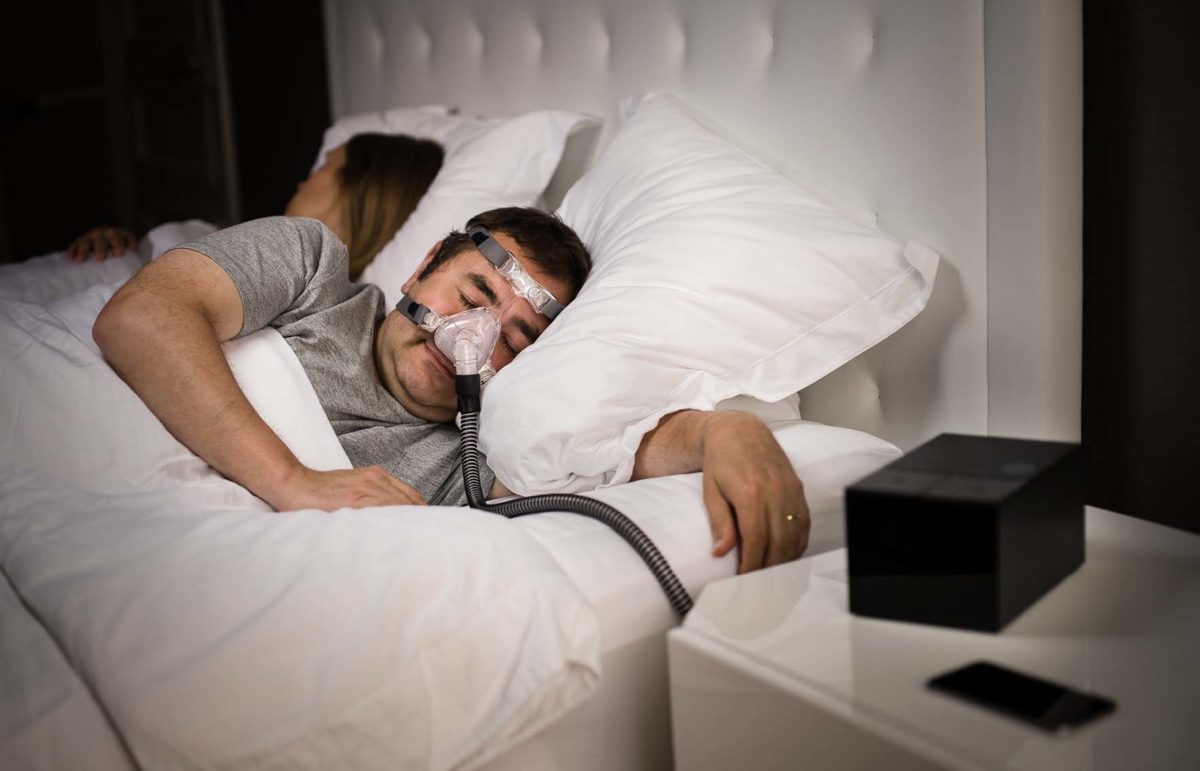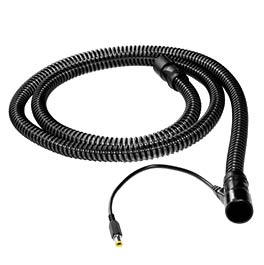Last updated on July 7th, 2023 at 11:34 am
A CPAP machine (Continuous Positive Airway Pressure) is one of the best treatments for those who suffer from Obstructive Sleep Apnoea (OSA).
For those with OSA, their airways close or narrow during sleep, preventing air from reaching the lungs.
A CPAP machine works by providing air pressure through a CPAP mask to prevent the airways from closing. Sleep Apnoea symptoms such as snoring and choking during the night are reduced or prevented.
However, some individuals may find that they are uncomfortable using a CPAP machine – as the airflow is too cold.
The are other CPAP alternative options.
Nevertheless, it is good to consider how adding a humidifier can improve your CPAP therapy.
Common CPAP complaints
The primary purpose of a CPAP humidifier is to eliminate some common issues that CPAP users experience, particularly those who might not be accustomed to a constant flow of air into their mouth and/or nose.
Common complaints and side effects:
- Sneezing
- Cold, uncomfortable airflow
- Dry mouth and nose
- Sinus congestion – find our sinus and nasal care here
- Coughing due to a dry throat
- CPAP mask leaks
- Headaches
These side effects can actually prevent the many beneficial effects of CPAP therapy.
If you happen to be dealing with one or more of the symptoms mentioned above, the chances are high that a humidifier will provide relief.
How does a CPAP humidifier work?
The main component of a humidifier is a water chamber (only to be filled with distilled water). Distilled water will add moisture and soften your airway pressure.
The water chamber is connected directly to the CPAP machine and, in turn, to the airway hose that attaches to your CPAP mask. When the machine and humidifier are activated, a small amount of distilled water will transform into vapour, leading to higher humidity levels within the airflow.
The main results offer a more comfortable breathing experience during the hours.
A CPAP humidifier will even benefit you in the Summer.
What water can I use in my CPAP humidifier?
You should only use distilled water in your CPAP humidifier. Distilled water prevents bacteria from reaching your sinuses and lungs.
You can purchase distilled water from pharmacies, online or at your local grocery store. If you’re in a pinch, you can use tap water boiled and left to cool down, but try to go back to using distilled water as soon as you can.
Why shouldn’t you use tap water? Mineral deposits from tap water can build up and potentially damage the machine. If your water chamber gets covered in grime too quickly, it is probably time to change the type of water you use.
CPAP humidifier benefits
Now that we have a basic understanding of the fundamentals associated with a CPAP humidifier, we can look at how these clever devices will enhance and improve your CPAP therapy.
The most obvious advantage is that you will be provided with a greater level of comfort. This enables you to fall asleep faster and remain asleep throughout the night.
However, this only scratches the surface regarding what you can expect to enjoy.
Benefits of a CPAP humidifier include:
- Preventing your throat, mouth and nose from becoming dry
- Decreasing the chances of nasal congestion
- Sinus relief
- Warm, moist airway pressure
A CPAP humidifier can also address a condition known as upper airway resistance syndrome (UARS).
This situation is essentially a combination of the symptoms outlined above.
As your mouth and throat will remain moist, the body will no longer need to produce excessive levels of mucus.
This results in fewer instances of coughing and sneezing.
Some CPAP machines have a built-in humidifier, and other devices will have a humidifier add-on option. Most humidifiers are machine specific – this means the humidifier can only be used with the compatible CPAP device.
Cons of a CPAP humidifier:
While CPAP humidifiers are extremely useful, it is still important to highlight a handful of potential issues which might decrease effectiveness. However, these can be easily resolved!
The most common issue is known as ‘Rainout’.
What is Rainout?
This is another term for describing condensation that can accumulate within the tube leading up to the face or mask.
This type of condensation is caused by differences in air temperature (think of the water that forms on a cold glass’s surface when placed within a warm environment).
Such a situation can lead to a gurgling sound, and it may sometimes be slightly uncomfortable while laying down in bed.
A CPAP heated tube or a hose fleece will solve Rainout effectively.
A heated tube or hose fleece keeps the humidified air warm during CPAP therapy, preventing condensation.
You can also have too much humidification. Depending on the climate you live in and how much humidity you have in your room, humidity levels from your CPAP machines can vary. Some models adjust humidity levels based on the temperature of the room.
Please note not all CPAP humidifier users have Rainout, so you may or may not come across it.
If travelling with a humidifier connected to your machine, the movement in your bag can cause the water from the reservoir to move in the machine – causing possible damage to internal parts of your device.
You can choose a travel CPAP device to make travelling simpler or waterless disposable humidification. The good news is that many humidifiers are separate from the CPAP unit, so they can be detached and then reattached when they need to be used in conjunction.
Increasing your CPAP comfort
CPAP humidifiers are excellent options if you have trouble sleeping with your current unit. They are also worthwhile recommendations for anyone who sleeps in a cool and dry environment. If you have been struggling with your current CPAP unit or if you constantly wake up throughout the night, it is wise to take a look at the different humidifiers available.
Let’s never forget that the primary intention of CPAP therapy is to provide you with a good night of sleep.
The addition of a cutting-edge humidifier can represent a very effective comfort option.
We advise cleaning and changing the water in the humidifier reservoir daily to increase your comfort. You can read more on cleaning your CPAP equipment here.
If you need any help with your CPAP therapy, please contact us.
Published: 19th August 2019





